Advisory Board
Dr. ir. Yan Wang
| Data Steward
Faculty of Architecture & the Build Environment | 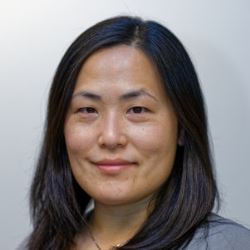 |
-
Data/information management, business process engineering, serious gaming/gamification, service management, enterprise engineering
ORCiD 0000-0002-6317-7546
-
E-mail address y.wang-16@tudelft.nl LinkedIn https://www.linkedin.com/in/yan-wang-6584116/ Twitter @yan_wang -
The motives and means of publishing research output is gradually changing nowadays due to:
- diversity in research output,
- the increasing publicity in social media and other digital environment. Open Access publishing, especially for non-traditional research output is of my interests as a data steward to facilitate transparent and reproducible research. In addition, I think it is important to properly crediting and rewarding researchers for their contribution which should be an integrated part of the TUDOP platform. Look forward to working together with other colleagues to explore and experiment innovative ways of scholarly publishing.
Dr. Christoph Lofi
| Assistant Professor Faculty EEMCS/EWI Web Information Systems group | 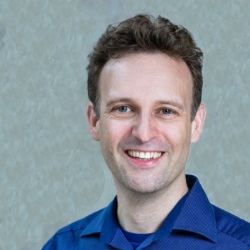 |
-
Semantic Data Management and Semantic Data Engineering; Meta-Data Management and Meta-Data Creation
ORCiD: 0000-0001-5641-5510
-
E-mail c.lofi@tudelft.nl LinkedIn https://www.linkedin.com/in/christoph-lofi-298009145/ Personal Page https://www.wis.ewi.tudelft.nl/lofi -
Open Access Publishing is a key ingredient to ensure continued success of the scientific process. As a computer scientist, I am very biased and influenced by the success stories of open source software development which provides us with many inspiring examples on how open knowledge creation and sharing can be realized. Helping to adopt and adjust some of these lessons-learned to the scientific publishing domain is an exciting opportunity for me.
Dr. Timon Idema
| Associate Professor Program director MSc Nanobiology Faculty of Applied Science Department of Bionanoscience | 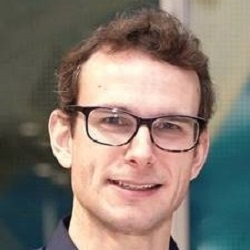 |
-
Biophysics, modeling, education
ORCiD: 0000-0002-8901-5342
Publications: https://idemalab.tudelft.nl/publications.html
-
Email: T.Idema@tudelft.nl
LinkedIn: https://www.linkedin.com/in/timonidema
Twitter: https://twitter.com/TimonIdema
Personal page: https://idemalab.tudelft.nl/
-
Science is by its very nature a collective undertaking. The only way to see further is to climb on the shoulders of the giants who came before you. The climb doesn’t just get easier if you do it together; you need to do it together to reach the top at all. Therefore, science, and education, should be open: to get access and to give access from everyone to everyone else, the only way to really get the collective effort moving.
Prof Dr Ir Bart van Arem
| Professor of Transport Modeling Faculty of Civil Engineering and Geosciences Department Transport & Planning |  |
-
Modelling of Intelligent Transport Systems
ORCiD: 0000-0001-8316-7794
-
E-mail b.vanarem@tudelft.nl LinkedIn https://www.linkedin.com/in/bartvanarem Personal Page http://www.citg.tudelft.nl/BvanArem -
Worldwide countries are challenged to safeguard reliable and sustainable accessibility for personal and freight transport. Digital connectivity, electrification and automation technologies are opening new solutions in all modes of transport. Different situations such as commuting, recreation or emergencies require different smart mobility combinations, in particular when physical space is limited. TU Delft is one of world leaders in transportation science and technologies and is committed to share its results with the international scientific community as well our societal public and private partners. Open publication of research results, methods and data are vital to accelerate achieving these goals.
Dr.ir. Frank van der Hoeven
| Assistant Professor Urban Design Director of Research Faculty Architecture and the Built Environment | 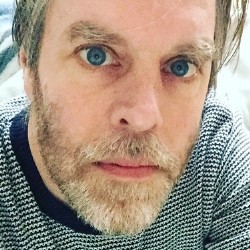 |
-
Urban design, climate adaptation, built heritage, digital open acces platforms.
ORCiD: 0000-0001-9308-0828
-
Knowledge is power and power should be shared. Sharing is in this context an activity that is more than making freely available for download. Accessibility depends also on the question if the knowledge is delivered in a way that is recognised by the field of science in terms of visual quality, information clarity and readability. Discoverability becomes a challenge when more and more information is available.
Dr. David Weissbrodt
Assistant Professor of Environmental Life Science Engineering Faculty of Applied Science Department of Biotechnology | 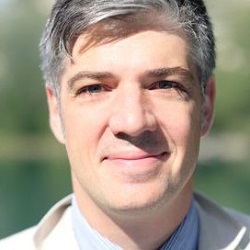 |
-
Water | Environmental Systems Biology | Systems Microbiology | Ecogenomics | Ecophysiology | Microbiome Science & Engineering | Mixed-Culture Biotechnology | Microbial Community Engineering | Resource Recovery | Wastewater-Based Epidemiology | Health
ORCiD: 0000-0002-6313-1652
-
Twitter: https://twitter.com/weissbrodtlab
-
Despite science is at the top of creativity, independent critical thinking, and innovation, science has remained poorly creative and critical on its way to disseminate and valorize research outputs. Publishing in so-called high-impact scientific journals has been the holy grail of the last couple of decades, often setting overpressure and distracting scientists out of their main duty to translate science into a real impact for the society. Scientific reports mainly remain within science and its load of jargon, and seldom reach users and the public. Publishing is not more than reporting. Reporting of results went so far at high costs that are mostly covered by public funds. Moving from parchments, to manuscripts, typing machines and computers, science has been transcribed across centuries on evolving supports, primarily paper-based. Pressing of articles and journals has been mainly a specialized activity of the publishing branch. Computerization of the sector led to simply copy-pasting the end-of-pipe publishing business model from paper to pdfs, shifting most of the article shaping from editors to authors. Scientists progressively became skilled to author and typeset manuscripts, visualize data, design graphics and artworks, craft summarizing videos among other duties related to the publishing of an article. So, why not becoming effective publishers? The digital revolution brings news ways to open the science silo and to democratize the publishing of scientific reports, to confront and dispute science among peers, and to reach out beyond the scientific community. This necessitates a thorough reappraisal by design.